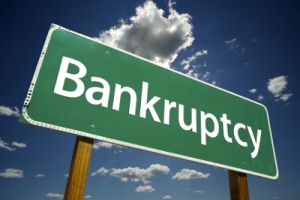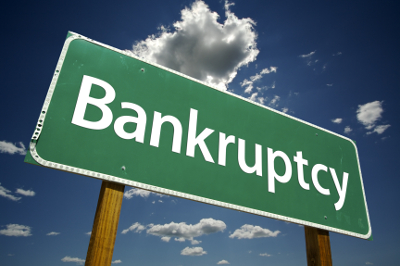What You Need to Know About Divorce & Bankruptcy in Arizona
 Filing personal bankruptcy is an arduous process already. Imagine the strain when one is filing divorce during their dissolution of marriage, then multiply the arguments raised by your ex-spouses attorney by how many arguments it’ll take to get both U.S. Bankruptcy Court judges on board with whatever the divorce judge says.
Filing personal bankruptcy is an arduous process already. Imagine the strain when one is filing divorce during their dissolution of marriage, then multiply the arguments raised by your ex-spouses attorney by how many arguments it’ll take to get both U.S. Bankruptcy Court judges on board with whatever the divorce judge says.
Arizona protects non-filing spouses when divorce crosses their ex-spouses bankruptcy. The process is somewhat tricky, so we’ll look at the more difficult points when one party files.
Protection from another’s bankruptcy petition
Bankruptcy absolves the filer of personal debts. This means debts incurred during the marriage that didn’t require a co-signer, or those debts carried into the marriage. One spouse cannot be held legally liable for those debts if brought up during divorce since an active bankruptcy petition will discharge personal responsibilities.
Community debts, or those acquired during marriage, are generally not included in bankruptcy petitions as it would create undue hardship for one or both parties, especially if real estate is involved.
Settlement agreements, real estate and bankruptcy
Note that the creditors are not bound by any divorce settlement agreements unless they signed-off of any modifications in the notes securing the property. As such, when it comes to homes, one may be inclined to quitclaim the property to avoid garnishment.
Quit claim deed transfers title, but that transfer is subordinate to any lien already in existence. However, if that lien is not a consensual lien (a judgment lien is an example of a non-consensual lien and a mortgage is an example of a consensual lien), the new owner’s homestead rights takes precedent. Meaning, if the judgment lienholder wants to foreclose, it cannot unless the forced sale will produce enough to pay the new owner the full Arizona homestead.
On the other hand, you could well lose the house because once you or your ex files Chapter 7, their side of the ownership of the property becomes fair game for the creditors. They could petition the trustee to sell the house and you would have no say in the matter as you no longer have an ownership interest.
In some cases, courts can even order in the divorce decree the spouse refinance home they intend to keep within a certain time.
Waiting until after divorce
Some may find waiting to file bankruptcy until their divorce is finalized works better. Depending on how assets and liabilities are divided, this could put debtors in position to file Chapter 13 instead of Chapter 7. However, waiting until after divorce could put your home and other assets in jeopardy, too, especially if you’re court-ordered to pay down those debts.
What if you began the process prior to divorce beginning? That has its disadvantages, like:
- Potentially leaving your ex-spouse without a home or assets you shared with them during the marriage; or
- Giving yourself little to split with your spouse, or
- Ruining their credit rating if items were shared purchases.
Think about what you’re filing, what you anticipate losing in divorce, and compare that with filing bankruptcy. Your goal is fairness to yourself, and your significant other, even if the marriage didn’t work.
Attorney help may be prudent
Consider retaining an attorney who understands the process. Someone who can help discern when filing would be more advantageous yet let strenuous on both parties. Divorce is already difficult; add debt issues to the mix, and you’ll find this time both expensive and nerve-wracking.
Chapter 7 or 13 are both viable options. Just know that if you’re filing during the divorce, any ordered alimony or child support payments will not be included. Nor will court-ordered property division.
Click here for more information on how will my spouse’s bankruptcy filing affect me?

